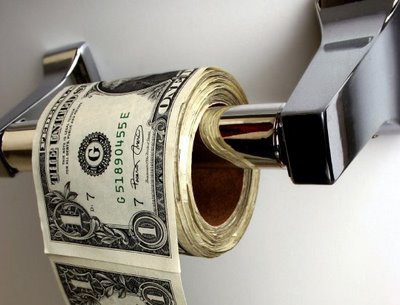
Recently, Orlando Sentinel columnist Mike Thomas made committed one of the greatest acts of political incorrectness by arguing that older Americans should not be receiving extra taxpayer dollars from the Obama Administration in an era where our mounting budget deficits threaten the long-term economic liberty of our children. Mr. Thomas should be more careful with his words. After all, today’s senior citizens and near seniors has become one of the greatest classes of plunderers in our nation’s history.
It did not used to be this way. From the founding of our nation until 1932 the government’s relationship with us was pretty simple as it applied to retirement and health care. Article One, Section Eight of the Constitution says nothing about helping us have a nicer retirement or good medicines. The agreement used to be that if you were young and had a job you needed to understand that someday you were going to be old and not want to have a job. Therefore from your young days until your old days you needed to assume personal responsibility for your impending retirement years by saving, investing and spending in a wise and frugal manner. You were also expected, in a nation founded on liberty, not security, to grasp the concept of illness, surgeries, the birth of children and so forth – and financially plan for that to.
Of course, our long experiment with socialistic economic policies began with Franklin D. Roosevelt and has accelerated under Republican rule (see George Bush’s budgets for social welfare programs) and Democratic rule (see today’s President).
For fiscal year 2009 the federal government will spend $3.998 trillion. Of that, $675 billion will be spent on Social Security and $386 billion on Medicare. That means that $ 1.073 trillion or 27 percent of the entire budget will be allocated to senior citizens. As Mr. Thomas bravely pointed out, the federal government is going to have to either raise taxes, or cut spending (you can start laughing now) by $101 trillion over the next 75 years to pay for the mandated future spending on older Americans.
Given our current birth rate and spending levels in other areas where the federal government is in charge, the average 21-year old American will, by the time they are in their mid-40’s, have to pay 50-60% of their total income in taxes in order to meet this obligation. That is up from an average of 33% today.
Many current senior citizens and baby-boomers claim that they are simply getting back what they paid in while they were working. Others argue that current federal spending is some sort of payback for winning World War II. Both arguments are nonsense.
First, during the first several decades that social security existed, people did not live very long, payroll taxes were small and the nation’s population of senior citizens was tiny compared to today. That means that the average American did not pay in much to the system that they are now enjoying. In fact, adjusted for inflation, it takes the average senior about two years to get back everything they paid in. After the two year mark they are simply living off of their children and grandchildren.
As for the World War II argument – or any other argument involving saving the nation – where does the G.I. Bill enter into the payback? Where does the idea that wars are won to preserve liberty rather than gain future political clout to take from your fellow man enter into the equation?
Winning wars is an act of self-interest – you don’t want the bad guys to win and take your stuff. Winning means you get to have your pursuit of happiness back.
If senior citizens really value the things that they fought for – and if the baby boomers really care about the liberty this nation is supposed to enjoy – the last thing any older American should be doing is filing a claim – through the voting process – on the private property of younger Americans.











